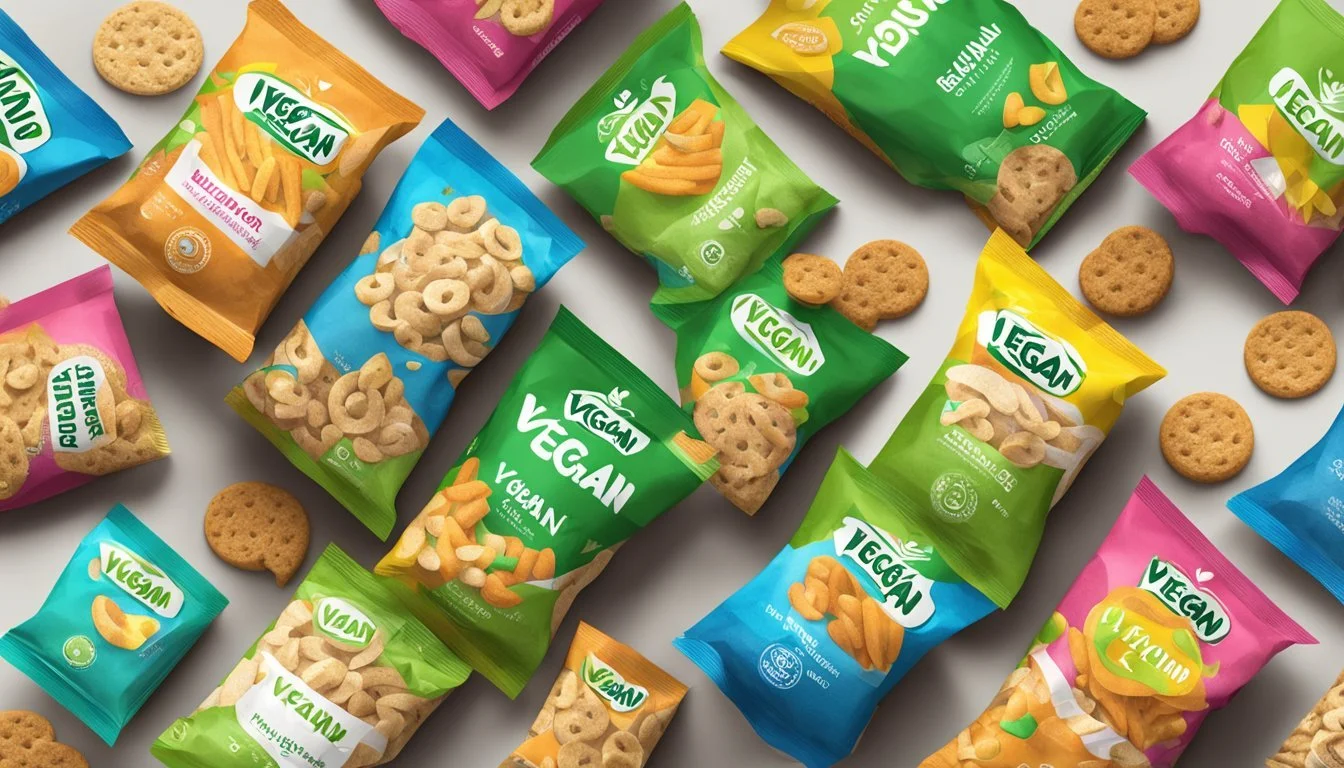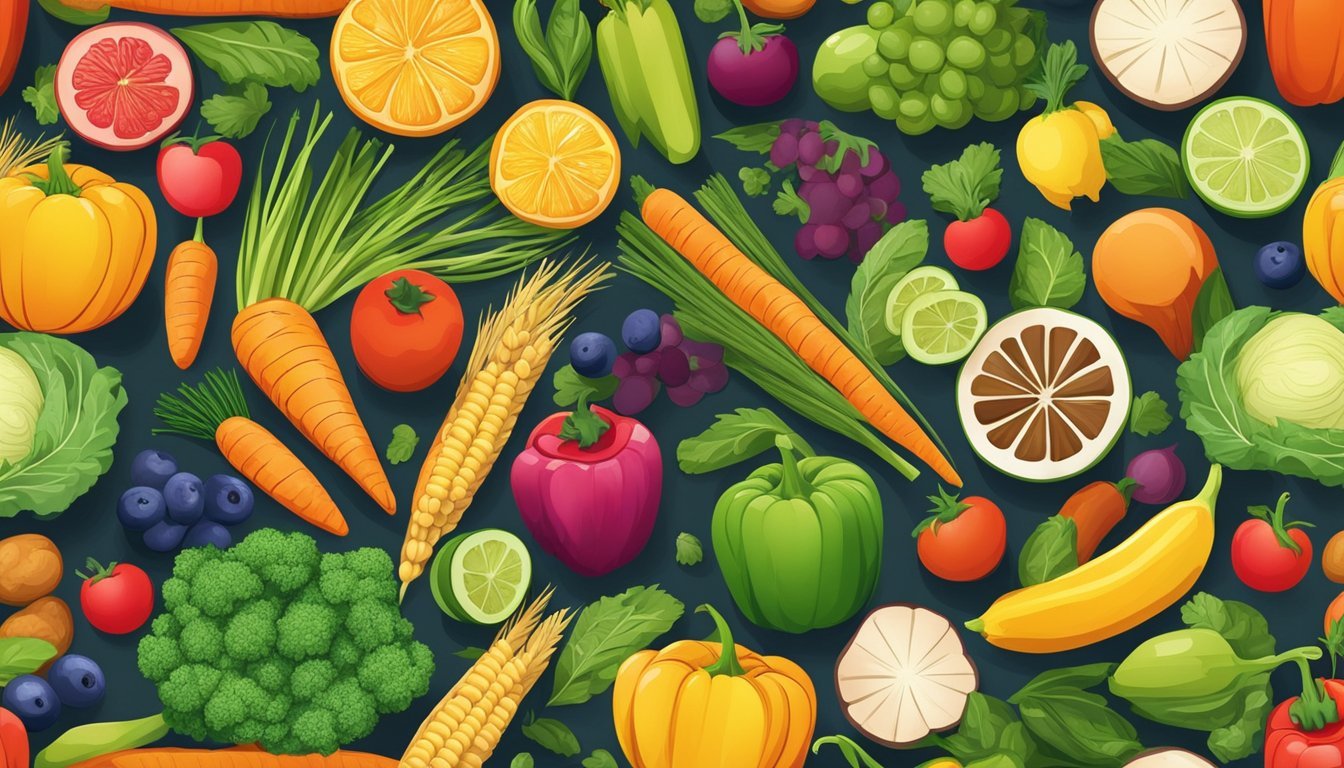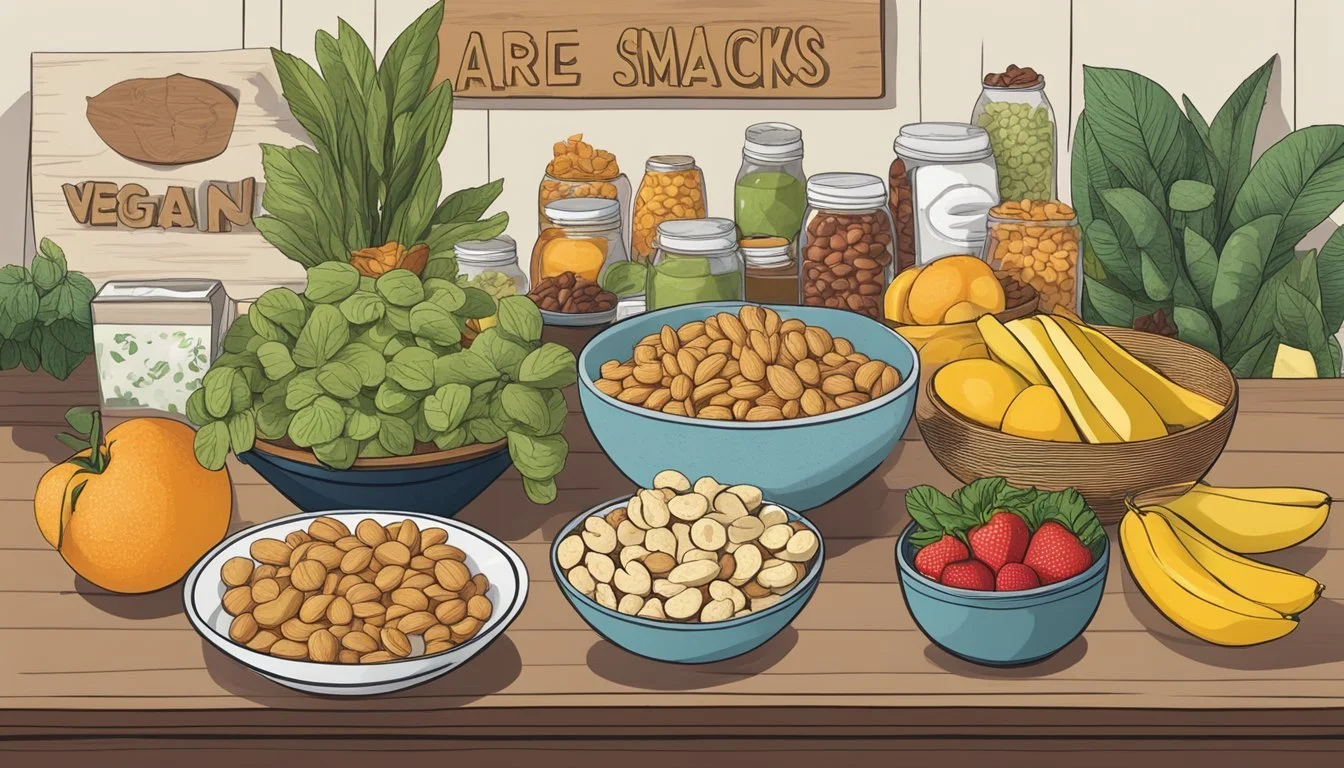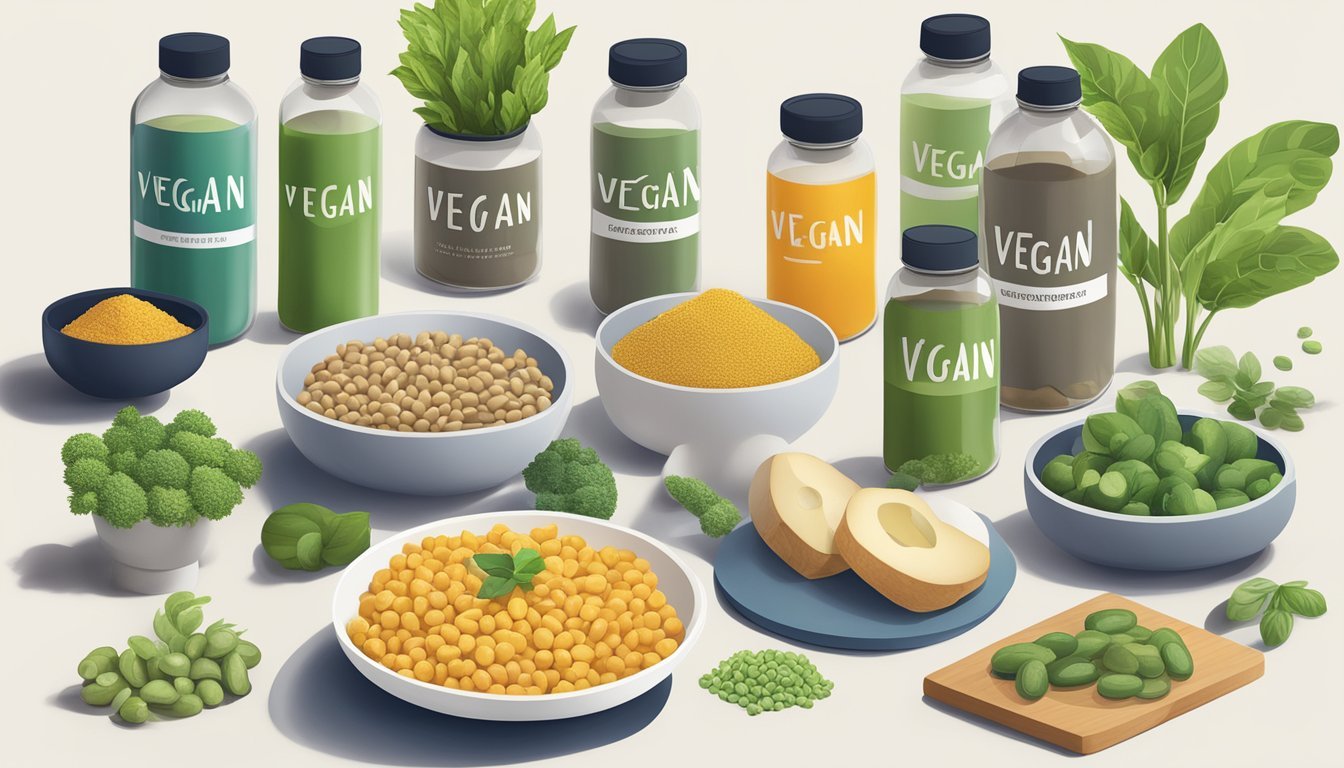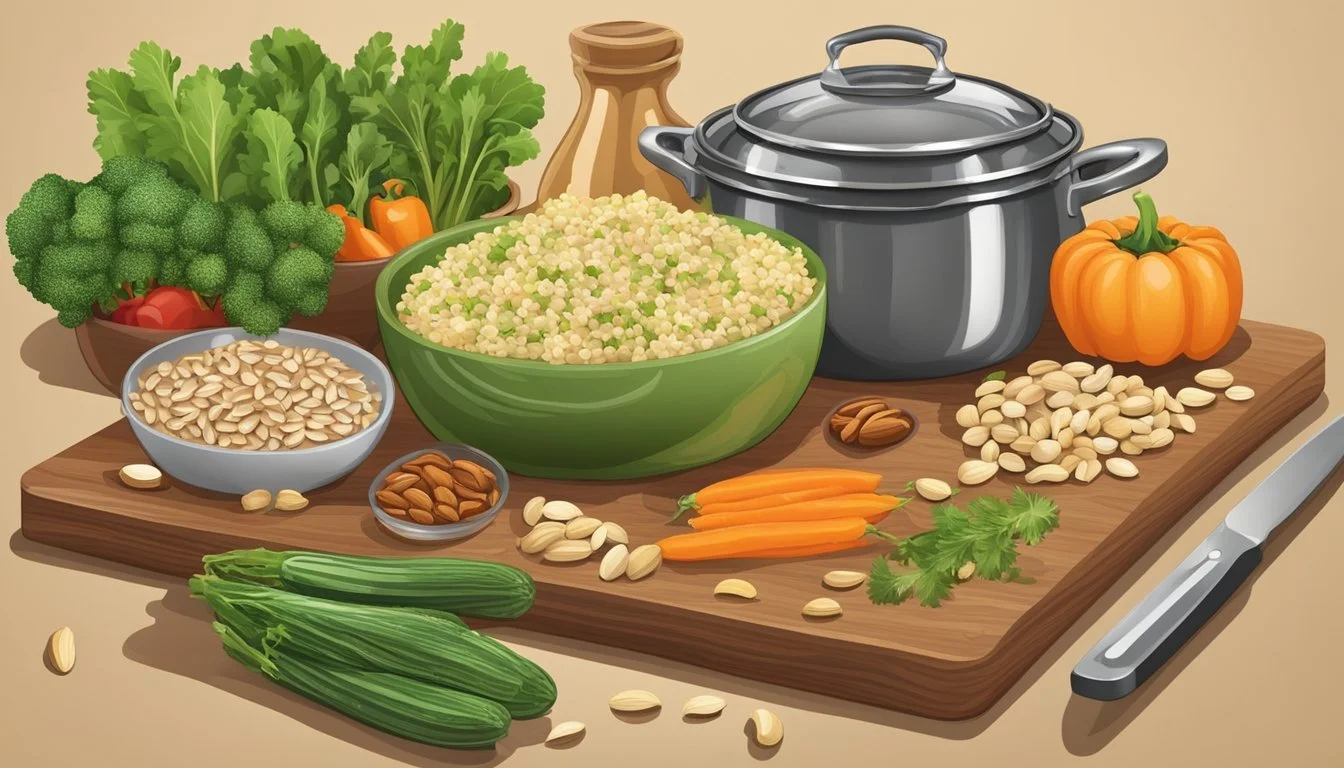Are Combos Vegan?
Unveiling the Snack's Ingredients
When it comes to snack options for vegans, the scrutiny of ingredients is a common practice. Combos, a popular stuffed snack food, has various flavors like Pepperoni Pizza Cracker, Cheddar Cheese Pretzel, and others which many might assume are off-limits for those following a vegan diet. This assumption is accurate as Combos contain dairy-derived ingredients such as cheese, whey protein, and milk, making them unsuitable for vegans.
Furthermore, even flavors that might seem potentially vegan-friendly on first glance contain animal products, hence no Combos flavors currently on the market are vegan. The non-vegan ingredients present in Combos are clear disqualifiers for anyone adhering to a strict vegan diet, which eliminates all animal products. In addition to the obvious dairy components, some ingredients may raise concerns about their origin, further solidifying the position that Combos are not an option for vegans.
What Are Combos?
Combos are a line of snack products well-known for their stuffed cracker and pretzel varieties, which are popular in the snack food market for their savory fillings.
Combos Ingredients
Combos snacks are composed of a crunchy exterior shell typically made from ingredients like wheat flour, palm oil, and maltodextrin. The filling typically includes a cheese blend, flavored with components such as dextrose, yeast extract, soy lecithin, and skim milk, providing the snack's distinctive taste. To enhance flavor and preservation, additives like natural flavor, coloring, lactic acid, citric acid, and lactose are often included.
Varieties and Flavors
Combos offers an array of flavors, attracting a broad consumer base. Among the many varieties, some examples include:
Spicy Honey Mustard: A fusion of sweet honey flavor with the sharpness of mustard, wrapped in a pretzel shell.
Mustard Pretzel: Another mustard variant providing a tangy twist.
Cheddar Cheese Pretzel: A classic combination of cheese and pretzel that is a staple in the Combos lineup. The snacks come in both pretzel and cracker forms, filled with a variety of flavor-infused cheese blends.
Understanding Veganism
Veganism is defined by a lifestyle choice to abstain from using animal products and to promote animal welfare. It encompasses a diet free from meat, dairy, eggs, and any other animal derivatives, as well as a broader ethical stance against using animals for any purpose.
Defining Vegan Products
Vegan products are those that do not contain any animal-derived ingredients or components. In terms of food, this means excluding:
Meat: flesh from any animal, including poultry and seafood.
Dairy products: milk, cheese, butter, and yogurt.
Eggs: from any bird species.
Honey: a natural sweetener produced by bees.
Whey: a by-product of cheese production often found in protein powders.
To be considered vegan, a product must also not be tested on animals or contain any material sourced from animals. This extends beyond food to include clothing, cosmetics, and household items.
Common Non-Vegan Additives
In processed foods, certain additives derived from animals are commonly found and may not be immediately apparent. Vegans should be aware of the following non-vegan substances:
Gelatin: derived from animal bones and connective tissue, used as a gelling agent.
Carmine: a red colorant made from crushed insects.
Casein: a milk protein often used in "non-dairy" products.
Lactose: a sugar derived from milk.
Shellac: a resin secreted by the female lac bug, used as a confectionery glaze or in varnishes.
Reading ingredient lists carefully is essential for those following a strict vegan diet, as animal-derived substances may not always be obvious.
Nutritional Profile of Snacks
When analyzing the nutritional content of snacks, it is important to consider both the macronutrient balance, which includes proteins, fats, and carbohydrates, and the presence of essential micronutrients including vitamins and minerals.
Macronutrients in Combos
Combos snacks typically offer a mix of proteins, fats, and carbohydrates. Proteins found in these snacks may come from various sources such as wheat or cheese, providing the body with necessary amino acids. Fats in Combos are often from oils or cheese, which are used in the snack's filling or dough. Carbohydrates are primarily provided by the grains used in the outer shell, which may include corn or wheat. While Combos can provide a modest amount of protein, they may not always contain a balance of essential amino acids required to form a complete protein, which is crucial for bodily functions.
Protein: Varies depending on the variety, can be a source of incomplete protein.
Fats: Can include saturated and unsaturated fats from cheese or oils.
Carbohydrates: Mainly from grains, provide energy.
Micronutrients and Other Elements
Micronutrients are present in smaller quantities within Combos, but they play significant roles in health and nutrition. The presence of micronutrients like iron and various vitamins depends on the specific ingredients of each snack variety. For instance, cheese-filled Combos might offer some calcium and vitamin B12, both of which are important for bone health and energy metabolism, respectively. However, because Combos are processed snacks, they may not be a significant source of these nutrients compared to whole foods like nuts, seeds, and legumes.
Iron: May be present in trace amounts; important for oxygen transport in blood.
Vitamin B12: Could be found in varieties containing cheese; essential for neurological function.
Snacks such as seeds and nuts are naturally rich in nutrients and may include peanut butter as a source of protein and healthy fats. These whole food options provide a more robust nutrient profile compared to processed snacks. It's worth noting that snacks combining grains and legumes, such as hummus with whole grain crackers, can result in a complete protein source, as they complement each other's amino acid profiles.
Special Considerations for Vegans
For vegans, ensuring a balanced intake of nutrients is crucial, especially when it comes to protein sources and essential vitamins and minerals. It's important to focus on incorporating complete proteins and a variety of nutrients to support overall health.
Complete Protein Sources
In a vegan diet, complete proteins—those containing all nine essential amino acids—are typically obtained from a variety of plant-based foods. While most plant proteins are considered incomplete because they lack one or more essential amino acids, some plant-based options like quinoa, chia seeds, soy, hemp seeds, and spirulina are complete proteins and can be valuable components of a vegan diet.
Finding Complete Protein Combinations
Combining different plant-based foods can provide the full spectrum of essential amino acids. Here are a few protein combinations to consider:
Legumes with grains (e.g., lentils with rice)
Hummus and whole wheat pita (combining chickpeas and grains)
Peanut butter on whole-grain bread
Vegan chili made with beans, peas, and amaranth or quinoa
Salad with mixed greens, nuts (such as almonds), and beans or tofu
Vitamins and Minerals for Vegans
Vegans need to be conscious of certain vitamins and minerals that may be more challenging to obtain through a plant-based diet. Important nutrients include iron and vitamin C, with iron being crucial for oxygen transport and vitamin C enhancing iron absorption.
To maximize iron uptake, vegans should aim to pair iron-rich foods with vitamin C-rich foods. Consider these pairings:
Iron-Rich Foods Vitamin C-Rich Foods Tofu Bell peppers Lentils Citrus fruits Chickpeas Dark green leafy vegetables Pumpkin seeds Strawberries Quinoa Tomatoes
Incorporating a variety of these foods can help ensure an adequate intake of these crucial nutrients.
Vegan Snack Alternatives
For those seeking plant-based munchables, a variety of homemade and store-bought options are readily available. These vegan snacks satisfy cravings with nutritious ingredients and pack a flavorful punch.
Homemade Vegan Snack Ideas
Fruit and Nut Toast:
Ingredients: Whole grain bread, almond butter, sliced banana, chia seeds
Instructions: Toast the bread, spread almond butter, top with banana and sprinkle with chia seeds.
Chickpea Salad:
Legumes: Chickpeas are rich in protein and make for a hearty salad base.
Mediterranean Flair: Combine with cucumbers, tomatoes, olives, and a lemon-olive oil dressing.
Sweet Smoothies:
Fruits: Blend frozen berries, bananas, or mangoes.
Seeds & Nuts: Add hemp, flaxseeds or a spoonful of nut butter for extra nutrients.
Store-Bought Vegan Snack Options
Nuts and Seeds: A handful of almonds or pumpkin seeds provides a quick protein fix.
Grains: Look for granola or cereal bars that use whole grains and natural sweeteners.
Convenient Legume-Based Snacks:
Snacks: Roasted chickpeas or bean chips are savory options that offer ample fiber.
Satisfying Sweet Treats:
Options: Dark chocolate bars with a high cocoa content are often dairy-free and provide rich antioxidants.
By exploring these choices, one can easily integrate vegan snacks into their everyday diet, ensuring variety and nutrition without compromising on taste.
Environmental and Ethical Considerations
When assessing whether snacks like Combos are vegan, understanding the environmental and ethical considerations is crucial. Vegan products are not only free from animal ingredients but also strive to minimize the environmental impact and ensure animal welfare.
Plant-based foods generally require fewer resources in terms of land, water, and energy compared to animal-based products. The production of vegan snacks often leads to:
Lower greenhouse gas emissions: Animal agriculture is a significant contributor to methane and CO2.
Reduced water usage: It takes significantly more water to produce animal products than plant-based ones.
Less land needed: Livestock farming uses a vast portion of arable land either for grazing or growing feed.
In terms of animal welfare, vegan products aim to forego the exploitation and harm of animals. They avoid ingredients resulting from animal slaughter or any form of animal use, which aligns with a compassionate ethical stance.
The demand for vegan snacks reflects a consumer shift toward:
Promoting sustainable food choices.
Recognizing the ethical implications of animal-derived ingredients.
Contributing to healthier dietary patterns.
Awareness of the connection between consumer choices, environmental sustainability, and ethical treatment of animals is driving the market for inclusive snacks like vegan Combos. Manufacturers who heed these considerations can appeal to a growing demographic prioritizing conscientious consumption.
Analyzing Food Labels
When examining food labels to determine if a product like Combos is vegan, one must scrutinize the listed ingredients and be alert to certain non-vegan additives.
Deciphering Ingredient Lists
Consumers should carefully review ingredient lists, which typically start with the most abundant ingredients and proceed in descending order by volume. Certain elements might immediately indicate non-vegan components; for example, if dairy products are listed, the food item is not vegan-friendly. Additionally, modified corn starch could be derived from various sources, and while it is often plant-based, discerning whether any animal products were used in its processing or modification can be challenging without specific labeling. With respect to coloring and natural flavor, manufacturers may not specify if they are derived from animal, vegetable, or synthetic sources. Lactic acid, commonly found in dairy products, can also be sourced from beet sugar or cane sugar fermentation and may be vegan.
Recognizing Non-Vegan Ingredients
A diligent assessment of food labels is critical in identifying non-vegan ingredients. Certain ingredients might not be as straightforward. For instance:
Natural flavor: might be derived from both plant and animal sources, and unless specified, it is uncertain which is used.
Lactic acid: present in many items and misinterpreted as dairy due to its prevalence in fermented dairy products; however, it can be vegan if derived from non-dairy fermentation processes.
Coloring: might have animal origins, such as carmine, which is derived from insects.
Non-Vegan Ingredient Common Vegan Alert Gelatin Derived from animal collagen Casein A milk protein Lactose A sugar in milk Whey A byproduct of cheese-making Honey Made by bees Shellac Sourced from insects
Labels might also explicitly state "contains milk" or "may contain milk," flags that the food is not strictly vegan. Labeling itself can offer clear indications through certifications and symbols denoting a product as vegan. In the case of Combos and similar snacks, vigilant label reading is essential to ensure plant-based dietary compliance.
Health Considerations in Vegan Diets
Adopting a vegan diet can offer health benefits, but it is crucial to maintain balanced nutrition and understand its long-term effects. Nutrient intake should be carefully planned to prevent deficiencies.
Importance of Balanced Nutrition
A vegan diet excludes all animal products, which necessitates finding alternative protein sources. Legumes, seeds, nuts, and soy products can provide adequate protein if consumed in sufficient quantities. It's equally important to ensure a variety of nutrients are included. For example:
Vitamin B12: Typically found in animal products, must be obtained through fortified foods or supplements.
Iron: Plant-based iron has lower bioavailability, but can be absorbed more effectively when paired with vitamin C-rich foods.
Calcium: Essential for bone health, available in fortified plant milks and leafy greens.
Omega-3 fatty acids: Found in flaxseeds, chia seeds, and walnuts.
Fiber is abundant in a vegan diet and supports digestive health. It's also associated with lower levels of cholesterol.
Long-Term Health Effects
The long-term health effects of a vegan diet are generally positive, including health benefits such as lower risks of heart disease, high blood pressure, type 2 diabetes, and certain cancers. This is partly due to the lower intake of saturated fats and cholesterol.
Consumption of antioxidant-rich foods like green tea, and spices containing curcumin and lycopene, is higher in vegan diets. These antioxidants can neutralize harmful free radicals, potentially reducing the risk of chronic diseases.
However, potential nutrient deficiencies can lead to health issues if the diet isn't well-planned – something vegans must be vigilant about to ensure they sustain their health benefits over time.
The Role of Supplementation
When individuals adopt a vegan diet, supplementation may become necessary to ensure adequate intake of essential nutrients that are typically more abundant or bioavailable in animal products. One must consider the bioavailability of nutrients, as plant sources may not always provide nutrients in a form readily absorbed by the body.
Vitamin B12 is a critical supplement for vegans, as it is not naturally found in plant foods. It plays an essential role in nerve function and the formation of red blood cells. A deficiency can lead to anemia and neurological issues. B12 supplements or fortified foods are recommended to prevent such deficiencies.
Iron is present in plant-based foods, but the non-heme iron in plants is less easily absorbed by the body. Consuming vitamin C-rich foods alongside iron sources can enhance absorption. Vegans may consider iron supplements to maintain optimal levels, preventing iron deficiency anemia.
A varied vegan diet offers plenty of protein; however, some may struggle to consume all essential amino acids. These are the building blocks of protein which the body cannot synthesize. A balanced intake of different plant proteins throughout the day can ensure the provision of all essential amino acids. If dietary balance is challenging, amino acid supplementation might be prudent.
Calcium and vitamin D are other nutrients to monitor, especially for bone health. Supplements can be beneficial, particularly vitamin D during the winter months or for individuals with limited sun exposure.
Lastly, vegan sources of omega-3 fatty acids, such as flaxseeds and walnuts, contain ALA, which the body must convert to EPA and DHA. The conversion rate is low, so supplementation with algae-based omega-3 can be advantageous.
Nutrient Plant Sources Supplementation Advantages Vitamin B12 Fortified Foods Prevents deficiencies Iron Legumes, Nuts Enhances absorption with vitamin C Essential Amino Acids Variety of plant proteins Ensures all amino acids are obtained Calcium & Vitamin D Fortified plant milks Bone health, particularly in low sunlight Omega-3 Fatty Acids Flaxseeds, Walnuts Algae-based for EPA and DHA
Preparing Vegan Meals and Snacks
When crafting vegan meals and snacks, one should consider both the cooking techniques that preserve the nutritional value of the food and the combination of ingredients that enhance nutrient absorption.
Cooking Techniques
Steaming and Boiling: These methods work well for a range of vegan foods, such as vegetables, legumes, and grains. Steaming vegetables like broccoli and kale helps retain their vitamins and minerals. Boiling is ideal for preparing rice and beans or quinoa, ensuring these staples are cooked thoroughly while preserving their nutrients.
Sautéing: Utilize a small amount of vegetable broth or water for sautéing garlic or onions to enrich the flavor profile of vegan dishes without the need for oil. This technique allows for the preservation of the aromatic properties of these ingredients, enhancing the overall taste.
Combining Ingredients for Optimal Nutrition
Rice and Beans: When paired, rice and beans create a complete protein, providing all essential amino acids. Integrating legumes like chickpeas or lentils with grains forms the basis for many nourishing vegan meals.
Grains and Legumes Table:
Grain Legume Nutritional Benefit Brown Rice Black Beans Complete protein, fiber-rich Quinoa Lentils High in protein, iron, and vitamin B6
Salads with Avocado and Lemon Dressing: Avocado isn't just a tasty addition to a salad; it's a healthy fat source that can increase the absorption of fat-soluble vitamins found in greens. A squeeze of lemon not only adds flavor but also vitamin C, which can assist in iron absorption from vegetables.
Oatmeal and Fruit Smoothies: Oatmeal serves as a hearty base for breakfast that pairs well with a variety of fruits. One might blend a smoothie with mixed berries and incorporate a handful of dark leafy greens like spinach for an extra nutrient boost.
Smoothie Combos:
Fruit Green Superfood Add-In Mango Spinach Chia Seeds Blueberry Kale Hemp Seeds
Enhancing Flavor and Nutrition: Sprinkle turmeric and a crack of black pepper over a warm soup or tofu scramble. The piperine in black pepper enhances the bioavailability of curcumin in turmeric, raising its health benefits. Add kombu when cooking dried beans to make them more digestible and to add minerals.

